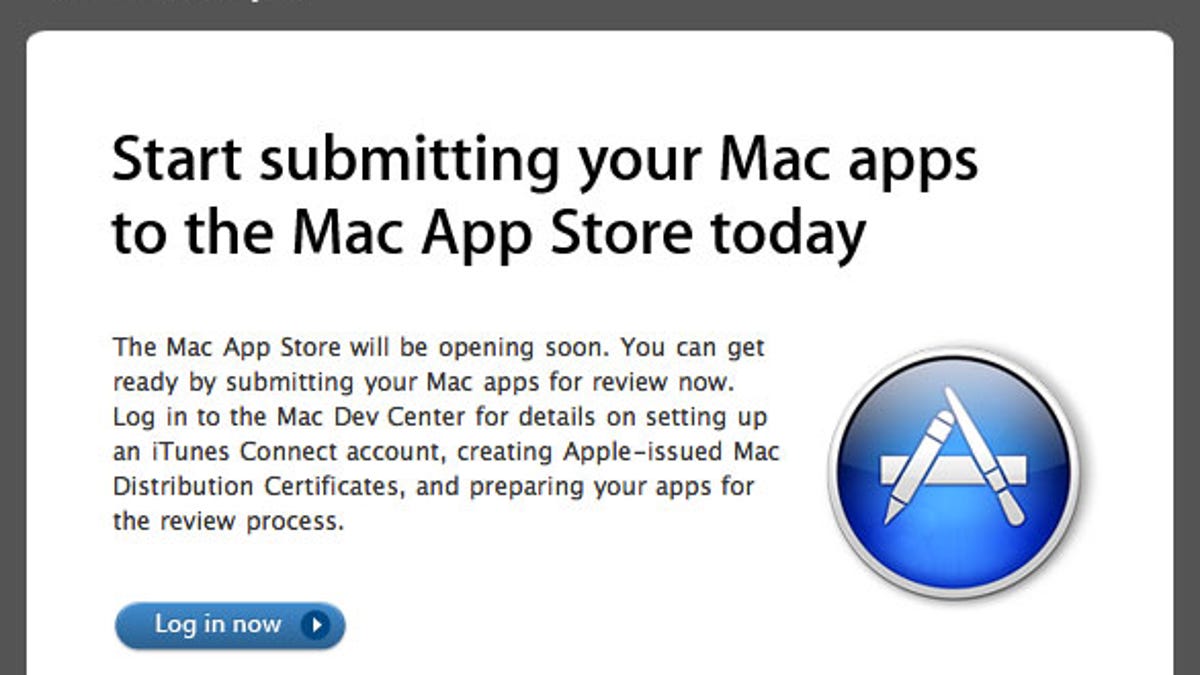Mac App Store opens doors to developers
Those who want to sell their Mac software through Apple's coming online distribution channel now can start building out its virtual inventory.

You can't download anything from Apple's upcoming Mac App Store, but as of late yesterday, those with software to sell through it can start uploading.
"The Mac App Store will be opening soon. You can get ready by submitting your apps for review now," an e-mail Apple sent to developers said. Interested developers should check Apple's developer center for details about related issues such as obtaining a certificate to distribute the software, it said.
Apple Chief Executive Steve Jobs announced the Mac App Store two weeks ago, saying it would open for submissions in November and for sales by January 28. It parallels in some ways the App Store that's proven successful in bringing software to users of the iPhone and iPad--including the revenue split through which Apple takes 30 percent.
The Mac App Store has the potential to dramatically transform software distribution--and not just for Apple's computers.
The App Store for iOS devices has proved successful as a vehicle for letting customers browse and discover applications and for developers who want a way to sell something like casual games. It's not hard for software companies such as Adobe Systems or Microsoft to publicize their wares, but particularly with the Mac's smaller customer base compared to Windows, it's a different story for a small developer with something like a $5 game or $15 utility to get noticed.
In the bigger picture, the Mac App Store could help catalyze the shift to digital distribution. The installation CD or DVD already is on the endangered species list for software installation, but the Mac App Store is designed to make installation easier as well as liberated from physical media.
That includes easier updates as well as the initial installation, helping make software a more fluid, ever-changing product. With the Internet, security holes need to be patched as soon as possible, and the lower the barriers to updating, the better.
App stores, at least in Apple's case, can keep track of purchase rights to help restore a computer from backup or move to a new machine. That means there's a potentially convenience benefit to the customer to sticking with one big app store rather than several smaller ones. And that means the app stores that secure some measure of dominance also can benefit from a continuous, potentially lucrative relationship with customers.
Of course, there are plenty of complications, too: Do rights transfer from one machine to another? Does the buyer get the right to use software on more than one machine, a situation that's increasingly common as people access Web applications from multiple machines and mobile devices? In Apple's case, the answer to those questions is yes, but there are still unknowns, such as how a developer charges for an upgrade.
Another matter, of course, is that app stores have rules governing what may be distributed through them. There's been plenty of complaining about how Apple has run the App Store for iOS devices, but Apple relented somewhat on its constraints, and arguably there's value to having a collection that's curated to be free of some of the dreck of the software world.
How this all shakes out in the real world, beyond the various mobile app stores already in operation, remains to be seen. But with the Mac App Store getting started--and with another potential heavyweight in Google's imminent Chrome Web Store--these matters will soon be real, not just theoretical.

